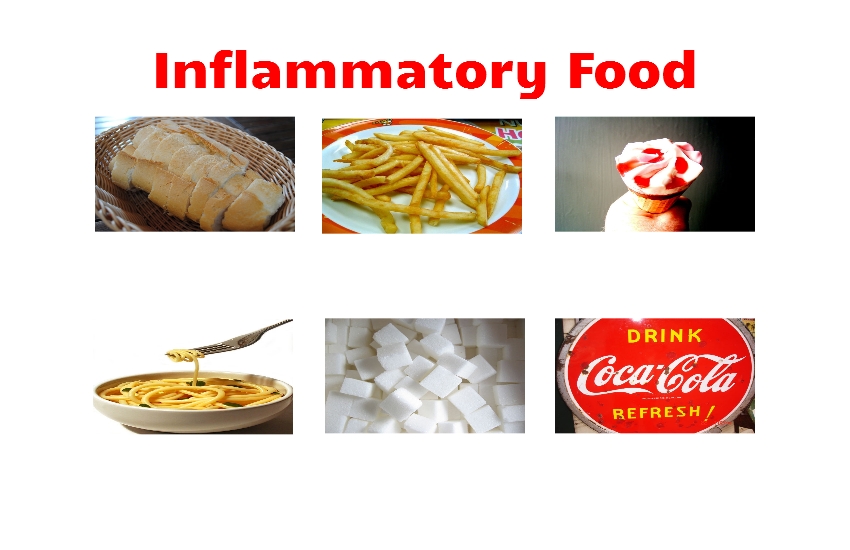Nutrition
These 10 Foods Cause Inflammation and Weight Gain
Inflammation is at the root of most diseases, and diet is largely what causes it. If you’re one to consume a Standard American Diet, or even a vegan diet for that matter, you’re likely consuming these foods that cause inflammation and weight gain.
Inflammation isn’t always bad, mind you. Our bodies naturally inflame when the body is injured or ill. This may manifest as swelling, redness, heat, as well as pain and discomfort. Like when you stub your toe, that immediate pain you feel is the body working in action to help fix whatever just happened. It is a normal and effective response that facilitates healing.
Unfortunately, chronic inflammation is a different story, and is largely caused by diet, stress, lack of exercise, smoking, pollution, and lack of sleep. It can be seen in those with leaky gut syndrome, arthritis, fibromyalgia, celiac disease and irritable bowel disease. It can also play a part in asthma and diabetes where the body continuously tries to heal tissues but fails.
As for weight gain and its connection to inflammation, inflammation makes our weight control hormone (leptin) to be less effective, which therefore causes weight gain. Thus, the two often come hand in hand.
As for the foods that contribute to inflammation, here are the ten worst offenders:
1. Refined Sugar
Sugar, found in soda, baked sweets, candy, and snack bars, all increase levels of glucose in our body, which our bodies cannot process quickly enough. This increases levels of pro-inflammatory cytokines in the body, increasing levels of inflammation in the body. Sugar also suppresses the immune system, and makes it more susceptible to diseases and infection.
2. Vegetable Oil
Vegetables oils from corn, canola, soybean and safflower and all the products that contain them (yes, even vegan items like “butter” spreads), are high in omega-6 fats (the bad ones, not the good ones like those found in evening primrose oil), which reduces the balance of omega-3 and omega-6 fats. When the body gets out of balance in these fats, inflammation is a result.
3. Dairy Products
All dairy products are high in saturated fats, which are naturally inflammation-causing. It is also a common allergen, as our bodies have trouble digesting lactose and casein proteins. See dairy as a foreign invader in the body, in which the bodily response is an inflammatory “attack”.
4. Wheat, Rye and Barley
These wheat-containing grains all contain a common allergen – gluten. The body responds with an inflammatory immune response when confronted by allergens, and so the resulting effects can be body pain, mucus production (runny nose, coughing up mucus), and tiredness.
5. Fried Foods
Fried foods are another trigger for inflammation. They contain high levels of inflammatory advanced glycation end products (AGEs), which are formed when anything is cooked to high temperatures, smoked, dried, fried, pasteurized or grilled.
6. Refined Flour
Refined flour, in other words, anything that is white and not whole-wheat, has been stripped of slow-digesting fibres and nutrients, which means your body breaks down these items very quickly. This will spike insulin levels, resulting in a pro-inflammatory body response.
7. Red Meat
When we consume red meat, a chemical called Neu5gc is produced. This chemical spurs cancer progression, and produces an inflammatory response in the body.
8. Processed Corn
Corn is in so many products. You really need to be careful to avoid this one. There are a variety of corn derivatives like high-fructose corn syrup, corn starch, and corn oil. Eating corn in these refined forms spikes blood sugar and as we have seen above, spiked blood sugar leads to an increased insulin response, which creates a major inflammatory response.
9. Artificial Chemicals and Additives
Anything artificially created, like chemicals and additives in foods, are not recognized by the body. They are foreign, and so naturally, the body needs to defend itself from these synthetic compounds, which means an inflammatory immune system response.
10. Trans Fats
Trans fats, aside from causing cancer, also create low-density lipoproteins, which feed inflammation. Trans fats are found in hydrogenated oils and many processed foods.
You can fight inflammation by slowly ditching the foods above, and incorporating the 10 foods below. Remember that inflammation is also caused by stress, lack of sleep, pollution, smoking, and lack of exercise (as mentioned below), so it isn’t just diet you need to focus on. Practice stress-reduction techniques, go to sleep earlier, quit smoking (if you do), and start walking if you’re not active.
1. Turmeric: one of the best anti-inflammatory foods out there. It’s active ingredient, curcumin, inhibits the activity of COX-2 and 5-LOX, two enzymes involved in the inflammatory response. Curcumin also blocks inflammatory pathways, and prevents inflammatory proteins from triggering pain and swelling.
2. Blueberries: high in antioxidants, which prevent oxidative stress and inflammation. Promote the production of anti-inflammatory cytokines in the body, which leaves us with lower levels of inflammation in the body.
3. Dark Leafy Greens: kale, collards, spinach, romaine, you name it! All amazing inflammation fighters, rich in antioxidants and anti-inflammatory molecules.
4. Avocado: contain polyhydroxylated fatty alcohols (PFAs) and phytosterols, which provide our bodies with anti-inflammatory benefits.
5. Watermelon: incredibly alkalizing, watermelon helps buffer the acid intake from a high-acid diet (namely, a high-inflammatory diet).
6. Hemp Seeds: contain an ideal ratio of omega’s 3 and 6. Omega-6 fats contain GLA, which works in the body as an anti-inflammatory, decreasing inflammation and helping people suffering from inflammatory-related diseases.
7. Medicinal Mushrooms: medicinal mushrooms like shiitake mushrooms contain high-molecular-weight polysaccharides (HMWP), which improve immune function and help battle inflammation.
8. Ginger: similar to turmeric, ginger is a anti-inflammatory healing root that boosts the immune system, and breaks down accumulation of toxins in the body.
9. Beets: high in antioxidants, beets help fight to repair cell damage caused by inflammation. They are also high in inflammation-fighting potassium and magnesium.
10. Pineapple: contain the inflammation-fighting enzyme called bromelain. It helps regulate the immune response that often creates unwanted inflammation in the body.

